Photo

Hello! Thank you for following Tribeca Film Festival on Tumblr. We’ve moved our fan-favorite cinema content to other social media accounts, so we’re closing the curtain on this profile.
Sign up for our newsletter here and follow us on Instagram, Twitter, and Facebook to stay updated on our upcoming programming: exclusive Tribeca Talks conversations, mind-boggling short films, and so much more. See you there!
60 notes
·
View notes
Text
Don’t let this be goodbye
Hey! We here at Tribeca Film Festival want to say a big, fat THANK YOU for following us on Tumblr all these years. We’ve moved the cinema content you love us for to other social media accounts, so we’re closing the curtain on this profile — but don’t you dare think this is goodbye.
In fact, we’re thrilled to be participating in We Are One, a one-of-a-kind global film festival thoughtfully co-curated by 21 of the oldest, most influential, and most prolific film festivals from around the world — all to raise funds for COVID-19 relief efforts. As part of the festival, Tribeca is premiering numerous films and airing never-before-released Tribeca Talks with legends like Francis Ford Coppola, Steven Soderbergh, and more.
Don’t risk missing out! Subscribe to our newsletter here and follow us on Instagram, Facebook, and Twitter to stay up to date on all our exciting 2020 film programs

21 notes
·
View notes
Photo
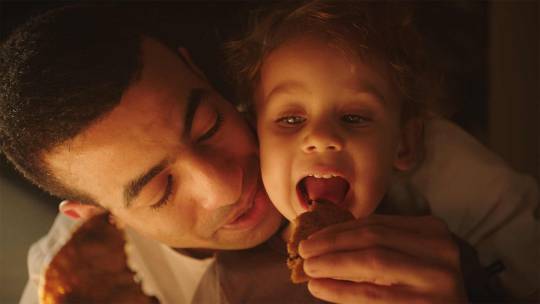
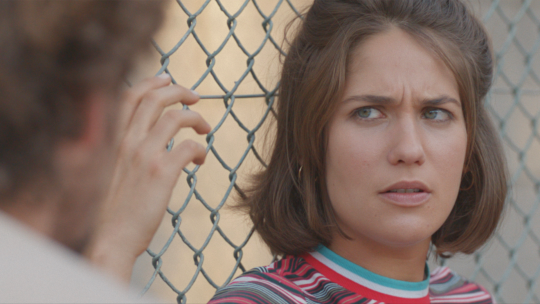
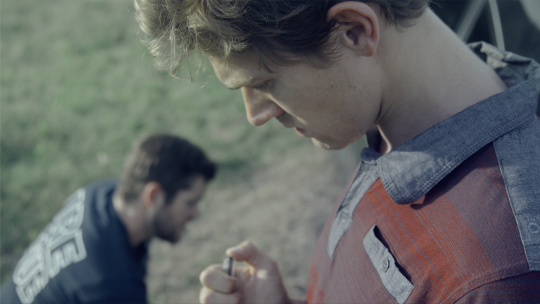

Tribeca is proud to present “A Short A Day Keeps Anxiety Away,” featuring shorts old and new with stories that keep us guessing, laughing and inspiring.
56 notes
·
View notes
Photo

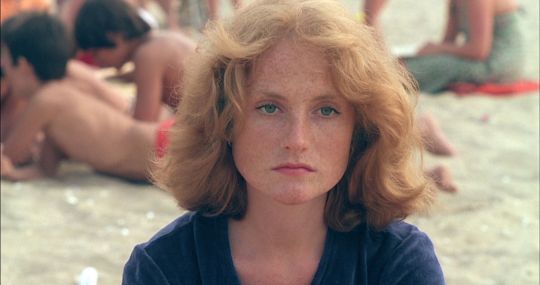
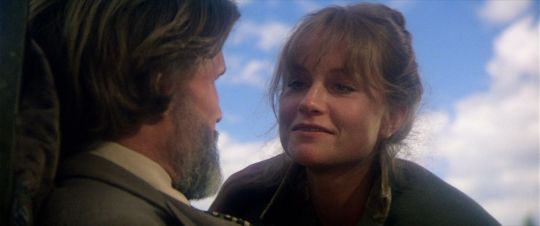


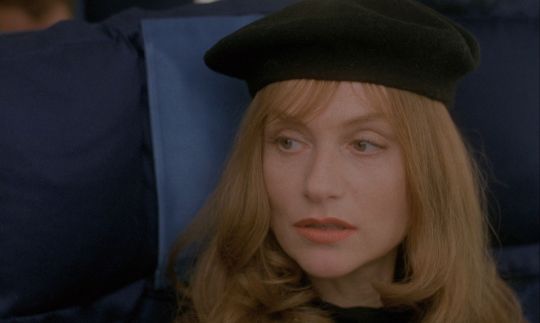
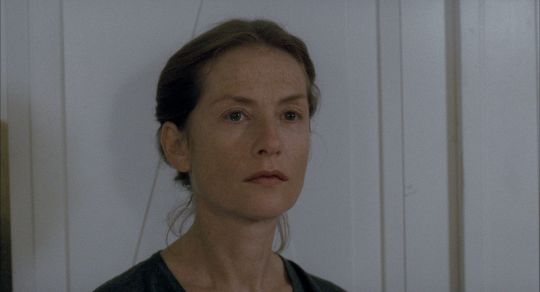
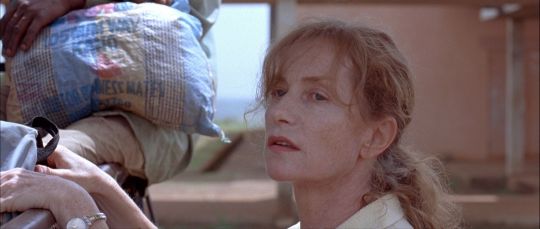
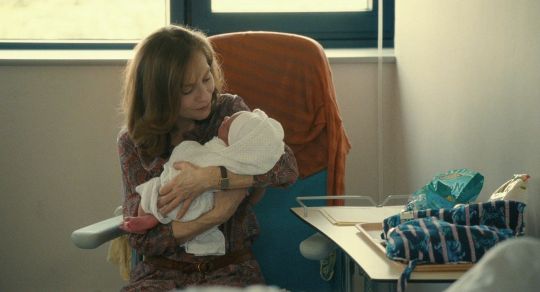

"I like to take these unusual characters and then make them as normal as possible because we all know that the tragedy and the abnormal always hides itself behind the normal."
✨ Happy birthday to the exceptional Isabelle Huppert, one of the greatest and most fearless actors to ever grace the big screen! ✨
#Isabelle Huppert#Film#Actress#Tribeca#Actresses#Film History#Elle#Film Anniversaries#Things to Come#Film Stills#White Material#Born Today#The Piano Teacher#Cinema#Cinephile#The Swindle#Le Ceremonie#Malina#Heaven's Gate#The Lacemaker#Legend#Paul Verhoeven#Mia Hansen-Løve
155 notes
·
View notes
Photo


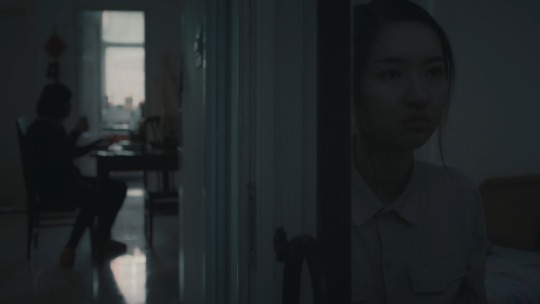


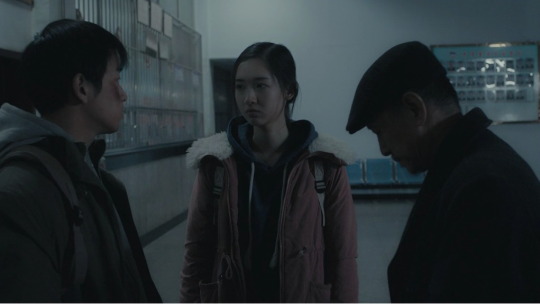
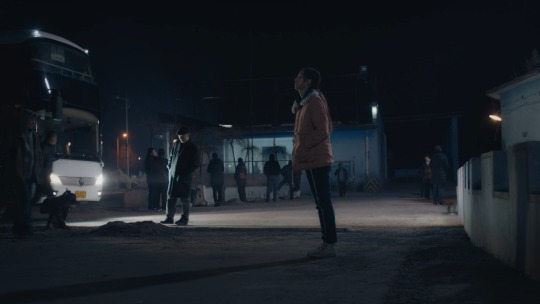
“Adolescent screen turns tend to be praised for their precocious hyper-expressivity or youthful dynamism, but Wang Yuwen does something different in An Elephant Sitting Still. In the late Hu Bo’s mammoth undertaking, a darkly poetic and nearly four-hour drama about discontented residents of contemporary China, Wang’s performance is defined by a deadpan, glassy-eyed grimace that covers the actress’ face throughout the majority of her scenes. Wang’s bracing simplicity as Huang Ling, a willfully disobedient schoolgirl, helps ground some of the more sensational elements of Hu’s conception of the character—her binge-drinking mother, her illicit affair with a married high school dean—within the realm of lived experience, as felt but not always as communicated by this recessive personality. An air of forbidding detachment clings to the actress, even when Huang is voraciously gobbling up pastries or a pitifully squashed birthday cake. By refusing to react, Wang cannily plays against the expectations of her character’s arc while providing a running commentary on a particular kind of teenage experience. Maybe one day, Huang will look back on the events portrayed herein with different, more palpable feelings, but for now she can only drift through the motions of an abysmal life she loathes. Blankness is often deemed a demerit in acting, a presumed indication of a performer’s vacuity, yet Wang’s blankness reveals not the absence of thought, but its painful concealment: in a world of so much sadness, what more can the young and isolated do but suppress and subsist? When Huang eventually lashes out at those who have failed to protect her after hours of grim impassivity, it begets a moment of volcanic release that the actress has earned by closely adhering to the state of silent despair that can so easily oppress those unready to fight it.” — Matthew Eng
The 12 Best Female Film Performances of Early 2019
(Source: TribecaFilm.com)
#Wang Yuwen#Film#An Elephant Sitting Still#Tribeca#Hu Bo#Film Stills#Actress#Films#Chinese Cinema#Actresses#Actor#Actors#Best Supporting Actress#Great Performance#Great Performances#China#Epic#Epics#Performance#Performances#Performer#Performers
57 notes
·
View notes
Photo
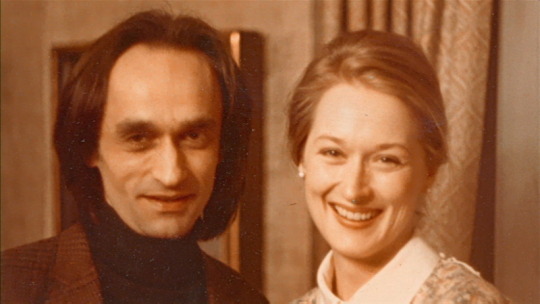

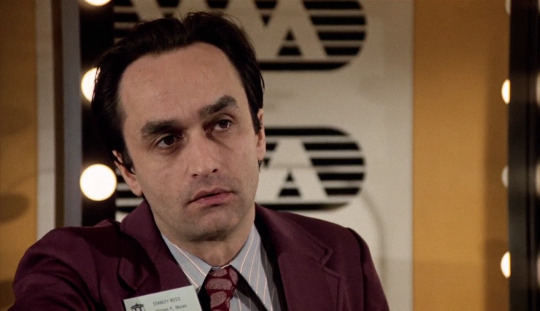
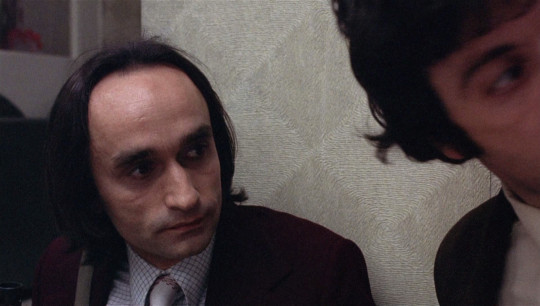
“I sometimes wonder if the inability to find oneself makes one seek oneself in other people, in characters.”
The graceful and masterly chameleon John Cazale, pictured here with Meryl Streep and in three of his greatest roles in The Godfather Part II, The Conversation, and Dog Day Afternoon, passed away on this day at the age of 42 in 1978.
Cazale only made five movies in his lifetime (all of them Best Picture nominees), but each one is as singular and indelible as the talent of this underappreciated genius who was taken from this world far too soon. ❤️
#John Cazale#Film#The Godfather#Tribeca#The Godfather Part II#Film Stills#The Conversation#Film History#Dog Day Afternoon#Film Anniversaries#The Deer Hunter#RIP#Meryl Streep#Cinema#Cinephile#Actor#Actors#Master#Masters#Rest in Peace#Legend#Legends#Best Picture
146 notes
·
View notes
Photo


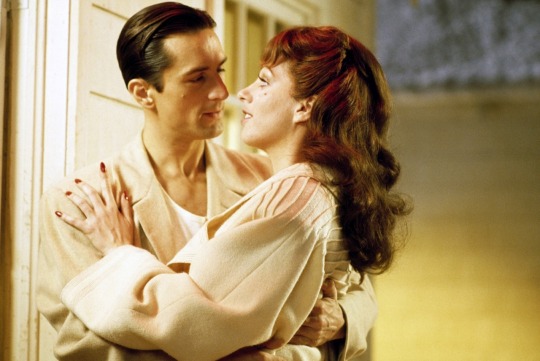


Happy 74th birthday to Liza Minnelli!
“New York, New York, Scorsese’s splashy, cynical, and masterfully-made postwar musical, was egregiously cold-shouldered upon its release, as was the singular star turn of Liza Minnelli, doing an adoring yet galvanizing variation on Mama Judy Garland's legendary A Star is Born role. As Francine Evans, an aspiring 1940s singer who falls under the influence of De Niro’s callous, captivating saxophonist, Minnelli is perpetually in motion, propelled by an insatiable need to please audiences and lovers alike. Minnelli is, of course, a stupendous, show-stopping singer-dancer with a walloping and finely honed talent that decidedly belongs to the bygone studio era in which her mother rose to otherworldly stardom. Minnelli’s artistic mastery is startlingly reminiscent of Garland’s yet differentiated by the pure, jubilant passion she exudes at all times when performing; has any artist ever radiated more graciousness for an audience’s gaze than Minnelli, as if the enormity of her abilities didn’t already demand our undivided attention? But, more than anything else, it’s the actress’ tough-minded, deeply-felt emotionality—culminating in an elevator descent of tremulous, heartbroken stillness—that proudly places her Francine beside Garland’s Vicki Lester, Julie Andrews' Maria von Trapp, Barbra Streisand’s Fanny Brice, and Minnelli's own Sally Bowles in the eternal pantheon of preeminent, pitch-perfect musical performances.” — Matthew Eng
The 10 Best Female Performances in Martin Scorsese Films
(Source: TribecaFilm.com)
#Liza Minnelli#Film#Martin Scorsese#Tribeca#Robert De Niro#Film Stills#Scorsese#Film History#Minnelli#Film Anniversaries#Liza#Born Today#De Niro#Musical#Musicals#Performance#Performances#Actress#Actresses#1977#Judy Garland#A Star is Born#Julie Andrews
41 notes
·
View notes
Photo
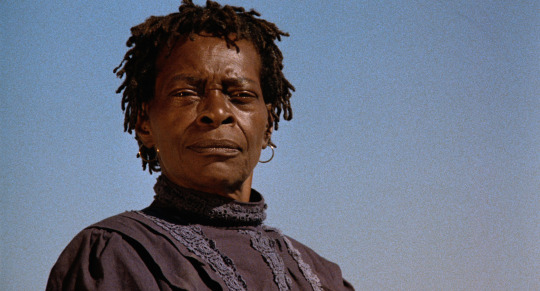
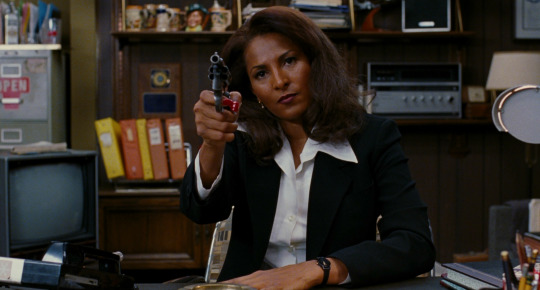
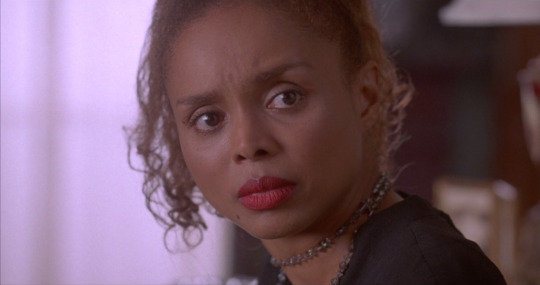
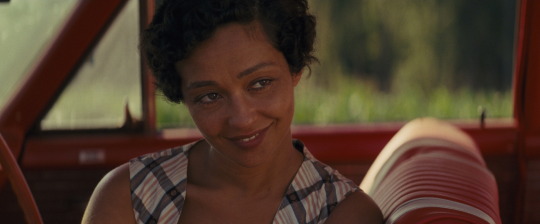
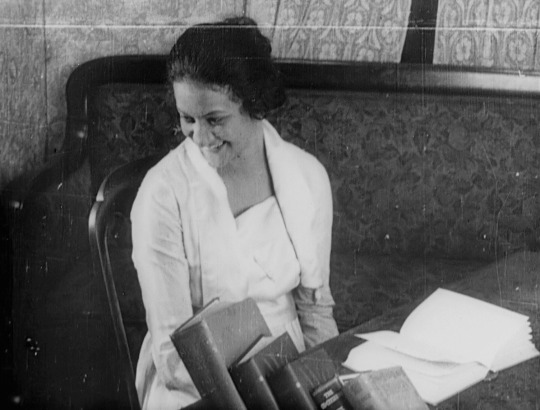
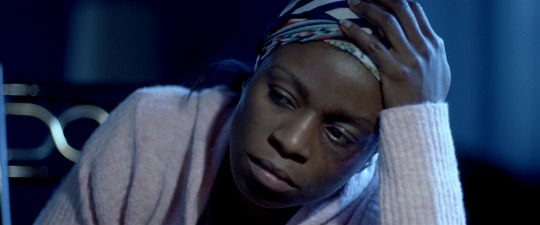
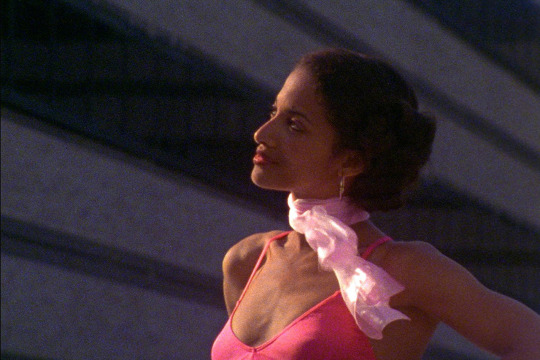
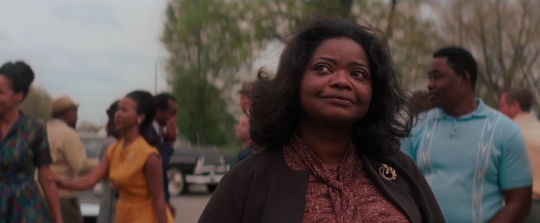

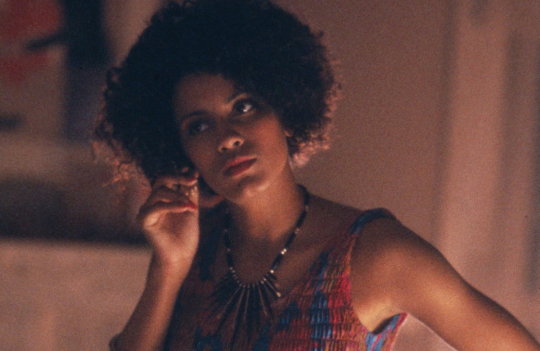
For Women’s History Month, here is our Black Actress Canon, an archive of exemplary, iconic, and underrated film performances that expands the notion of what is largely recognized and rewarded as great screen acting, encompassing Evelyn Preer to Pam Grier.
The Black Actress Canon
(Source: TribecaFilm.com)
#Black Actresses#Film#Women's History Month#Tribeca#Black Actress#Film Stills#Cynda Williams#Film History#Karidja Touré#Octavia Spencer#Tarra Riggs#Seret Scott#Evelyn Preer#Ruth Negga#Debbi Morgan#Pam Grier#Cora Lee Day#Mary Alice#Angela Bassett#Black History#Women's History#Black Artist#Black Artists#One False Move#Girlhood#Hidden Figures#Losing Ground
445 notes
·
View notes
Photo




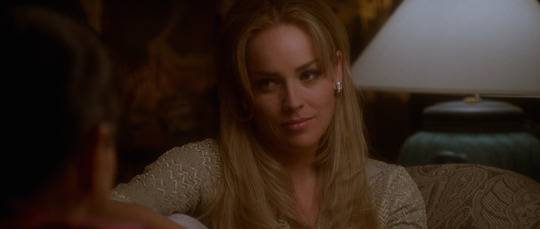

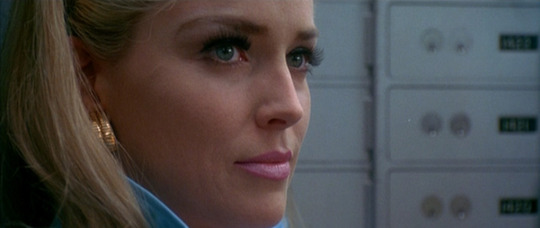
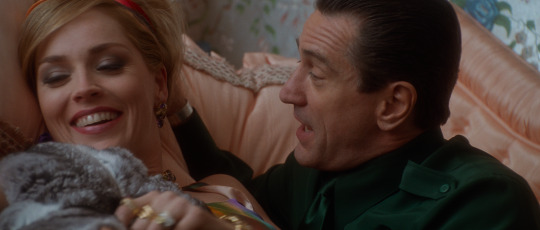
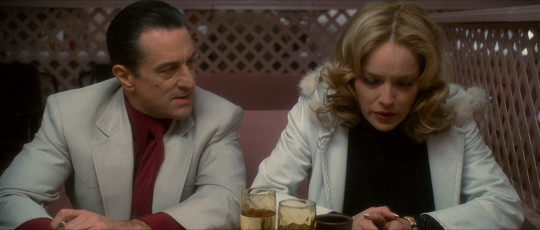
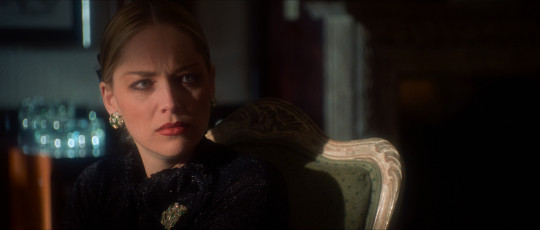
Happy birthday, Sharon Stone!
“Nothing and nobody else matters in Martin Scorsese’s Casino whenever Sharon Stone’s decadent and devastating Ginger McKenna slinks into a frame. Playing a bona fide hustler unhappily betrothed to De Niro’s smitten casino honcho, Stone is the single most striking element in Scorsese’s fact-based Las Vegas crime saga. The actress can take our breath away just by strolling into a room in a beautifully beaded Bob Mackie gown, but she’s also playing a real, anguishing woman to never less than riveting effect. Stone’s voluptuous emotional shadings make us believe every stage of Ginger’s ever-shifting character, whether it be the scam artist with a criminal knowledge to rival any man’s, the codependent lover, the keyed-up addict, or the materialistic housewife itching to get out of her lavish prison at any cost, even if it means offing her husband/jailor with the help of his equally infatuated best friend. Stone never sands down Ginger’s rough edges and her strident, exceptionally physical blow-ups in the film’s final act conjure an intricate and unabating intensity that some critics like to pretend is the exclusive provenance of men in Scorsese’s movies; they’re wrong, and Stone’s superb and rightfully iconic performance is the enduring proof.” — Matthew Eng
The 10 Best Female Film Performances in Martin Scorsese Films
(Source: TribecaFilm.com)
#Sharon Stone#Film#Casino#Tribeca#Martin Scorsese#Film Stills#Robert De Niro#Film History#Joe Pesci#Film Anniversaries#Scorsese#Born Today#Actress#Actresses#Ginger McKenna#Great Performance#Great Performances#Actor#Actors#Cinema#Cinephile#De Niro#Icon#Icons#Best Actress#Iconic#Legend#Legends#Bob Mackie#Pesci
128 notes
·
View notes
Photo

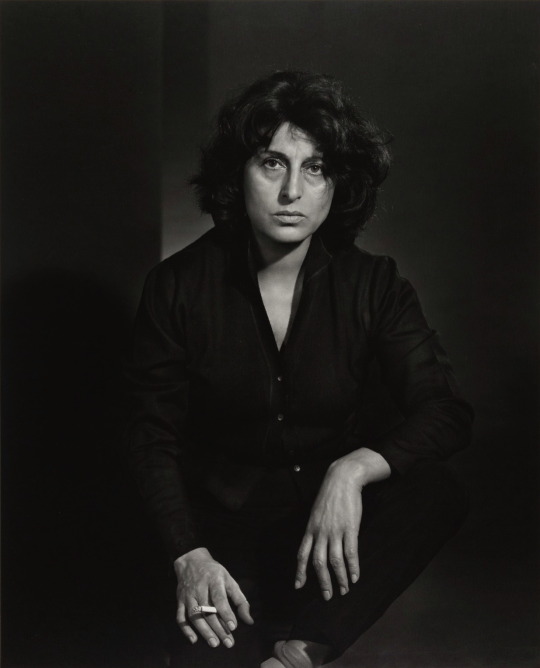
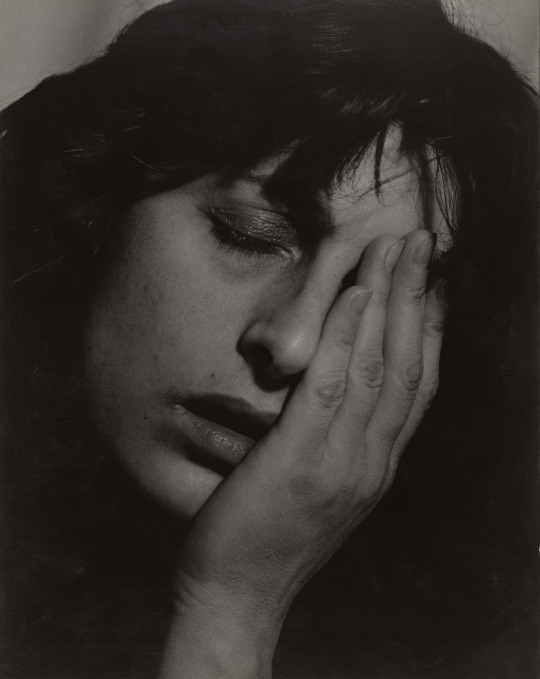
“Please don't retouch my wrinkles. It took me so long to earn them.”
Anna Magnani, who pushed her raw, virtuosic genius to cathartic heights seldom reached before or since in cinema, was born on this day in 1908.
#Anna Magnani#Film#Actress#Tribeca#Actresses#Film History#Rome Open City#Film Anniversaries#The Rose Tattoo#Born Today#Cinema#Cinephile#Acting#Actor#Actors#Mamma Roma#Italy#Italian#Performer#Performers#Black and White#The Fugitive Kind#The Golden Coach#Legend#Legends#Queen#Queens#Legendary#Icon#Icons
124 notes
·
View notes
Photo
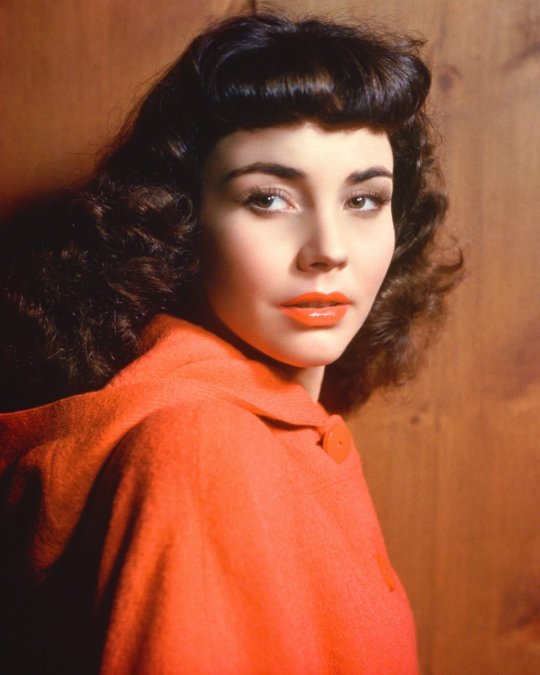
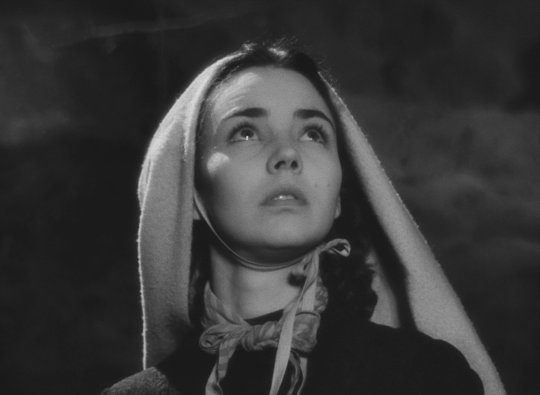
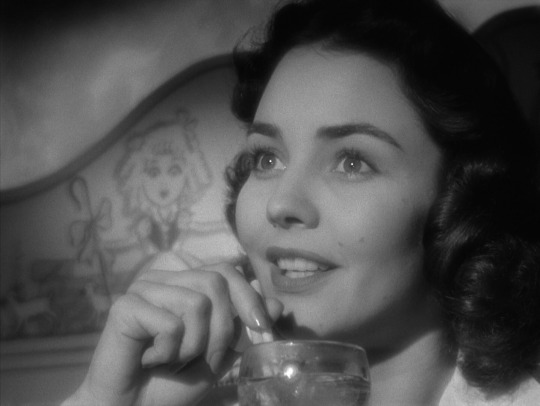
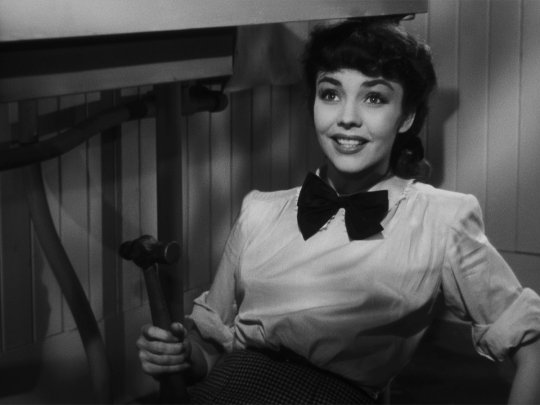
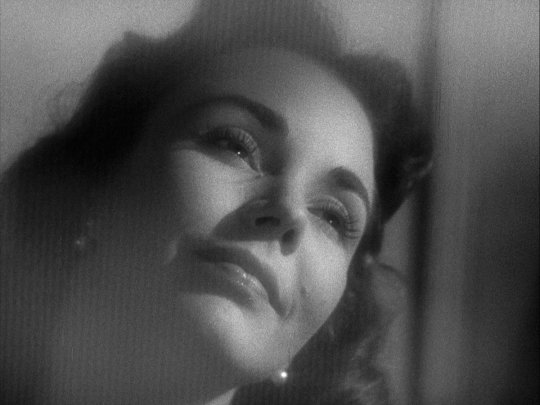
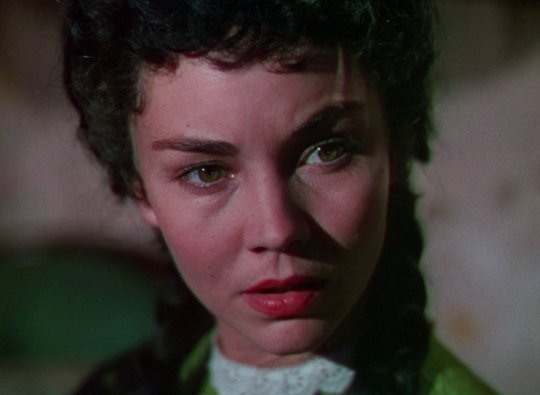

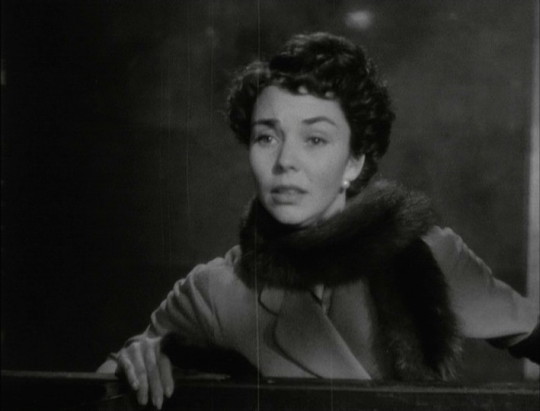
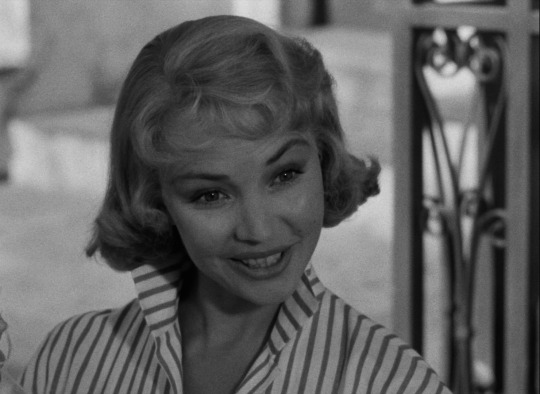

"Every time I stop to think about it, I'm really amazed. I think I've had an extraordinary life. And lots of times, I can hardly believe it's me."
Jennifer Jones, one of the most beguiling and unforgettable stars of Hollywood's golden age, was born on this day in 1919. 💗
#Jennifer Jones#Film#Old Hollywood#Tribeca#Film Star#Film History#Film Stars#Film Anniversaries#Actress#Born Today#Beat the Devil#Cinema#Cinephile#Indiscretion of an American Wife#Hollywood#Actresses#Portrait of Jennie#Cluny Brown#Since You Went Away#The Song of Bernadette#Star
41 notes
·
View notes
Photo


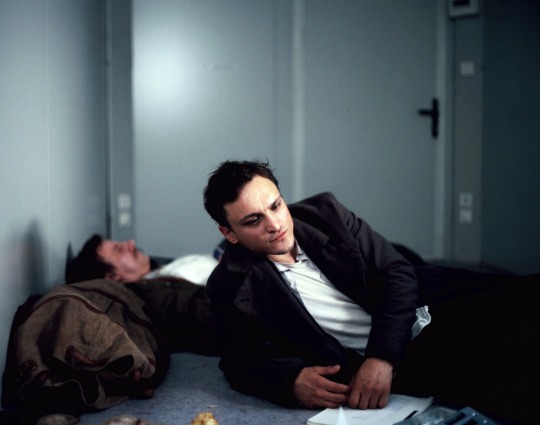

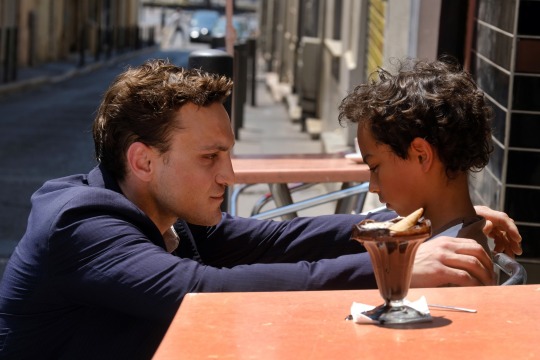

“Franz Rogowski drifts into Christian Petzold’s Transit like the ghost of a man. As Georg, a desperate refugee posing as a writer to gain Mexican asylum and escape an occupied and increasingly hellish Europe, Rogowski first appears visibly emptied of feeling. Georg is a scarred witness to the atrocities of life during wartime, an enigma defined only by a drive to survive. His clammy body is shifty in its motions, as though not wishing to be noticed; his eyes are vacant, save for the troubled look that emanates in an early, pivotal moment of fight-or-flight calculation. Rogowski serves as the steady center of Petzold’s dystopian drama, and his revelatory performance is a carefully calibrated crescendo in which this blank canvas accrues new marks of affection, wistfulness, and guilt, becoming an ever more layered creation in the process. The actor has been endowed with an unconventionally beautiful face as distinctive and demonstrative as Al Pacino’s, but one that can be easily restricted of its full expressive power depending on who is standing behind the camera. We have seen the brooding hardness in Rogowski’s features before, but Petzold is one of the first directors to showcase its kindness, pleasing not in spite of its bruises but because of them. Petzold’s camera basks in the softness of Rogowski’s emoting visage as Georg lies in the arms of a newfound love or loses himself in the recital of a remembered lullaby from his youth, our dawning recognition of the actor’s capabilities paralleled by our gradual understanding of the character as Georg emerges from his self-preserving state of detachment. It is only fitting that Petzold ends his film with a devastating close-up of Rogowski lit from within by a foolish and impossible hope, his face a worn map eager to be discovered and read by an audience already attuned to its every microscopic movement.” — Matthew Eng
The 12 Best Male Film Performances of Early 2019
(Source: TribecaFilm.com)
#Franz Rogowski#Film#Transit#Tribeca#Christian Petzold#Film Stills#Great Performance#Great Performances#Cinema#Cinephile#Best Actor#Actor#Actors#Acting
107 notes
·
View notes
Photo

“If an older, mellower Karen Carpenter were to transmit us a tune from an FM station located a galaxy light years away, she might sound a whole lot like Weyes Blood, née Natalie Mering. The ten tracks on Titanic Rising, the singer-songwriter’s intoxicating fourth album, feel like otherworldly daydreams unfolding in slo-mo, but Mering’s distinct voice is a fount of earthly tenderness that heightens the urgency of her songs’ lovelorn strains. On “Andromeda,” a plaintive plea for connection despite the distractions of our modern age, Mering evinces the same clarion smoothness and sentimental propensities as the late Carpenter, who was adored and reviled by a public at a time when her wholesome style of soft-rock, pure in voice and heart, was gradually on its way out. But there is—and has always been—profound value in Carpenter’s music, and her legacy is alive and well in the heartening work of descendants like Mering. In the final chorus of “Andromeda,” Mering draws out the lines, “Love is calling / It’s time to give to you / Something you can hold onto / I dare you to try,” with such honeyed tones that each note brings to light a new layer of pining; it is a prime example of how the emotive power of a talented vocalist can inflame the significance in seemingly simple lyrics. Mering’s rapturous delivery identifies love as both a concept for better, more fulfilling living and a warm and welcoming body that resides beside one’s own. Beneath the silvery surface of Mering’s lush alto and the earnest ruminations it communicates lie unfulfilled dreams as vital as those once sung about by Carpenter, a craving for closeness that can only be felt by those who are ready to listen.” — Matthew Eng
Memorable Moments from Great Performances of 2019
(Source: TribecaFilm.com)
#Weyes Blood#Tribeca#Titanic Rising#Music#Musician#Andromeda#Karen Carpenter#Great Performance#Great Performances#Natalie Mering#Best of 2019#Song#Songs
42 notes
·
View notes
Photo
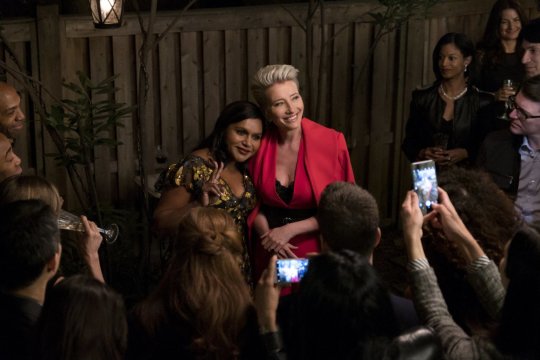






“Even when her characters stand at life-altering crossroads, Emma Thompson always radiates the cool confidence of a certified genius who possesses an unshakable belief in herself and her gifts. We may sometimes doubt the sustainability of the women she plays, but we never doubt Thompson’s ability to imbue their experiences with humor, grace, and profundity. Late Night’s Katherine Newbury, a venerated comedian facing the loss of the talk show that is her lifeblood, is a role tailor-made for the sharp-witted comedic gifts that Thompson is seldom invited to utilize in her latter-day career, save for the occasional awards show presentation. Her sardonic one-liners consistently kill, but Thompson also knows that a withering, well-timed look or a purposeful pause can speak equal volumes. Yet what really distinguishes Thompson’s performance is the prickly, supercilious air that enshrouds Katherine, a byproduct of the actress’ welcome disinterest in making the character palatable or easy to root for; Thompson is too honest an interpreter to sand down the off-putting edges of this deeply flawed woman or simply heroize her last stand against the turning tides of network television. That we root for Katherine nevertheless is a natural inevitability when casting Thompson, who guarantees that Katherine’s moments of pathos, vindication, and victory will be earned and balanced out by the plausible, warts-and-all multidimensionality that is this sublime artist’s stock-in-trade.
Late Night is very much Thompson’s show, but it’s also a reminder that screenwriter and costar Mindy Kaling shines brightest when writing to her strengths, one of which is endowing often naïve, sometimes corny, and permanently genuine underdogs with worth and vitality on the page and screen. As Molly, the tokenized and exceedingly green new addition to Katherine’s all-male writers’ room, Kaling delights by leaning in to the character’s earnestness with the unabashed exuberance of a comedian who is accustomed to, say, looking like a fool or extending an awkward moment a beat or two past the normal threshold of comfort. It would be easy to play a character this painfully sincere with winking, in-on-the-joke irony—in other words, to emphasize the lie of one’s own performance. Kaling excels by doing the opposite, committing so hard to Molly’s verbal and physical faux pas that we are not only amused by the character’s wide-eyed gaucheness but duly convinced of it. Yet Kaling also knows that sweetness need never be confused for simplicity, and she emerges as a terrific proponent for this would-be heroine, giving Molly the cleverness and dignity to make us believe she could lift the dinosaur that is Katherine’s show out of a creative rut. By film’s end, Molly has proven that her ideas, smarts, and “lack of boundaries” are imperative, and her creator has persuaded us that her performative wit and pluck are qualities which the floundering American comedy should continue to harness. Kaling’s performance, like Thompson’s, suggests the tougher, more pointed, less polite satire Late Night might have been, but watching this unexpected yet inspired pair play off one another is never less than a spikily satisfying diversion.” — Matthew Eng
The 12 Best Female Film Performances of Early 2019
(Source: TribecaFilm.com)
#Late Night#Film#Emma Thompson#Tribeca#Mindy Kaling#Film Stills#Nisha Ganatra#Actress#Actresses#Comedy#Comedies#Women Directors#Women Filmmakers#Performance#Performances#Great Performance#Great Performances#Comedian#Comedians#John Lithgow#Reid Scott
197 notes
·
View notes
Photo

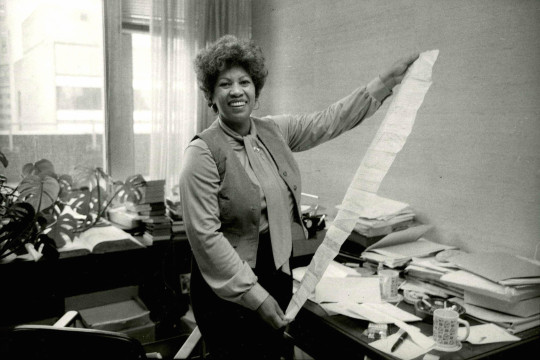




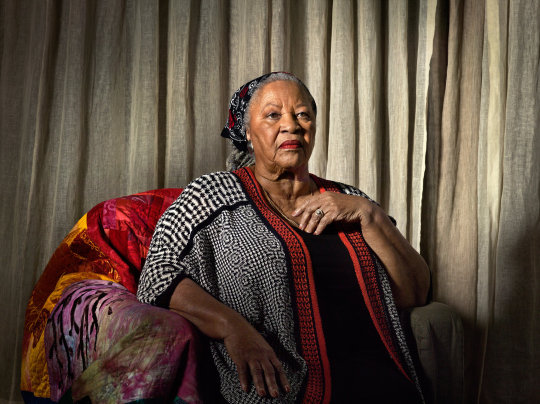

"Word-work is sublime because it is generative; it makes meaning that secures our difference, our human difference—the way in which we are like no other life. We die. That may be the meaning of life. But we do language. That may be the measure of our lives."
Remembering Toni Morrison, a towering and unsurpassable genius whose fearless independence and vital voice will remain an eternal inspiration, on what would have been her 89th birthday.
#Toni Morrison#Beloved#Born Today#Song of Solomon#Writer#Writers#Quote#Quotes#Writing#Legend#The Bluest Eye#Legends#Black Artist#Black Author
788 notes
·
View notes
Video
Gerrymandering has become a symbol for everything broken about the American electoral process. But many are fighting to change the system.
From Tribeca 2019, Chris Durrance and Barak Goodman's documentary Slay the Dragon is a detailed, maddening, and ultimately inspiring look at those fighting to keep democracy alive. See it in theaters starting March 13th! ✊
#Slay the Dragon#Film#Documentary#Tribeca#Documentaries#Film News#Coming Soon#Festival News#Doc#Film Trailers#Trailer#Trailers#Chris Durrance#Barak Goodman#Gerrymandering#Democracy#Presidents Day#Election#Politics#American Politics
24 notes
·
View notes
Photo



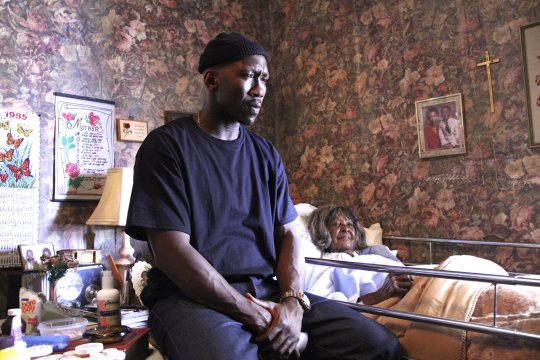
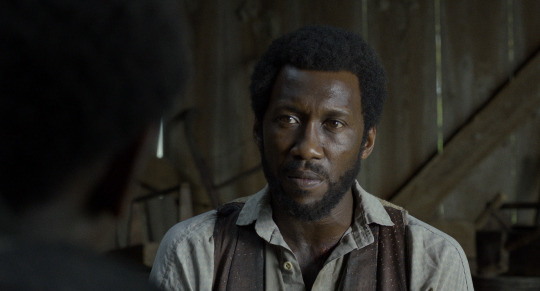
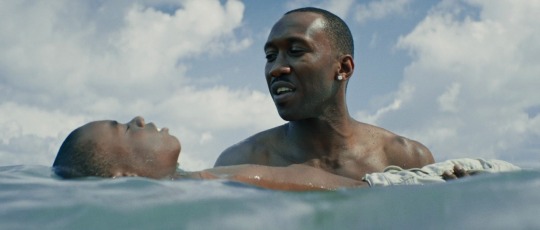
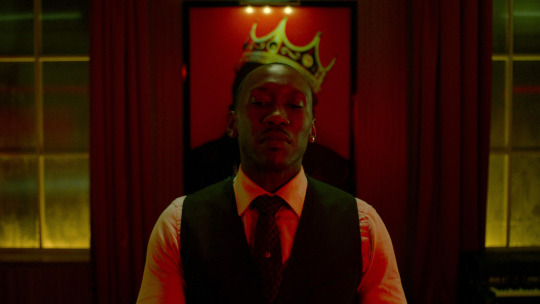

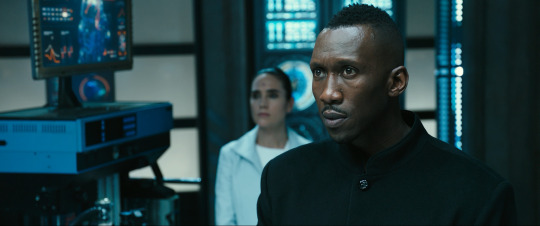
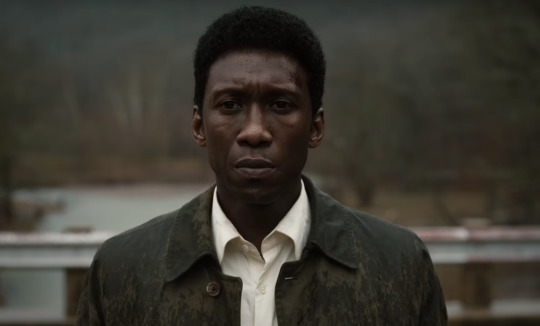
"Be conscious of how long the journey is, be patient, push yourself, persevere and always be working on your craft while waiting for your break. That's what I'm still working on."
Happy birthday to the astonishing, masterful Mahershala Ali!
#Mahershala Ali#Film#True Detective#Tribeca#Film Stills#Alita#Film Anniversaries#Green Book#Born Today#Luke Cage#Film History#Moonlight#Cinema#Cinephile#Actor#Actors#Free State of Jones#Kicks#House of Cards#The Curious Case of Benjamin Button#Acting#Oscar#Alita: Battle Angel#Best Supporting Actor#Cottonmouth#Barry Jenkins#Performance#Performances#Performer#Performers
1K notes
·
View notes